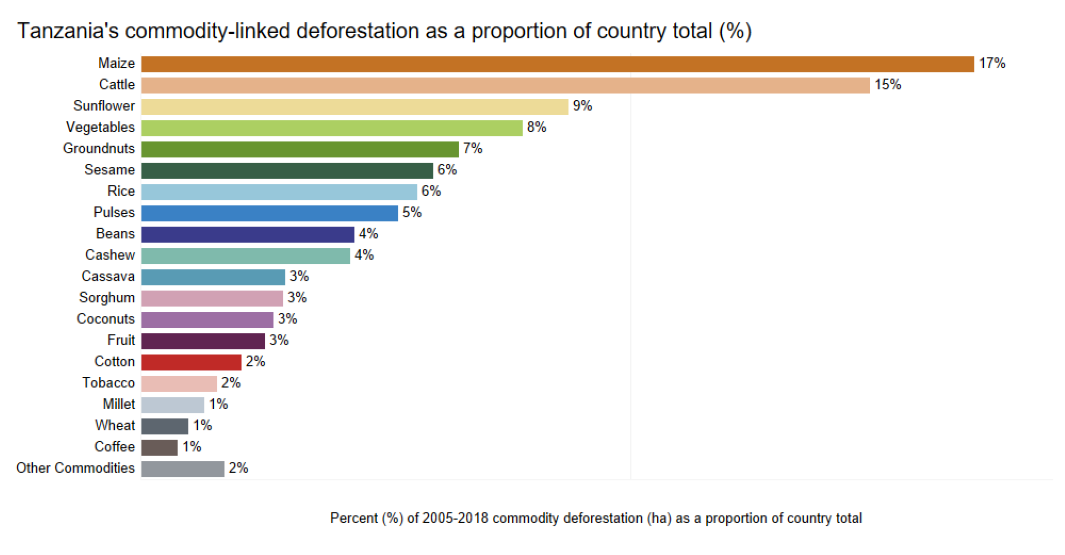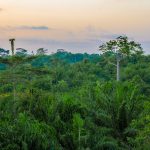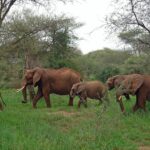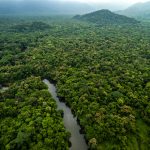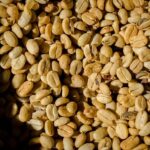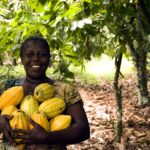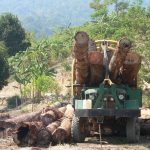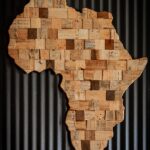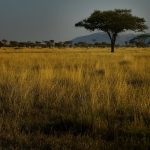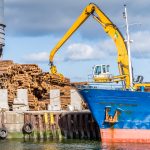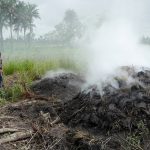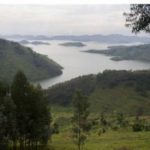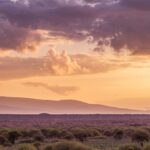Timber
Other Forest-Risk Commodities

Kleptocrats on the continent are profiting from the illicit forestry trade, which is estimated by Interpol and the United Nations Environment Programme to be worth $51 billion to $152 billion annually. Short summaries of the issue provided for DRC, Mozambique, Zambia, Equatorial Guinea, Namibia, Zimbabwe, Gabon, Tanzania, Kenya.
Handeni District Council in Tanga Region has introduced a new strategy to allocate special funds for forest conservation, aiming to combat the rampant deforestation driven by illegal logging, agriculture, charcoal production, and cattle grazing.
The meeting aimed to enhance stakeholders’ understanding of the Integrated Forest Biomass Energy Solutions for Tanzania (IFBEST) project, funded by the European Union. “Moving forward, we will dedicate all revenue from forest products, fines, and taxes solely to forest conservation, instead of using these funds for council expenditures,” said Stephen. He added that the council expects to raise 250m/- this year to support forest conservation efforts and ensure the safety of their forests.
The Team Europe Initiative (TEI) supports capacity building and provides technical support on traceability
systems, geolocalisation and legality to partner countries, through a specialized Technical Facility and
programmes such as SAFE and AL-INVEST Verde. TEI programmes are active in Brazil, Colombia, Democratic
Republic of the Congo, Ecuador, Ethiopia, Indonesia, Kenya, Nigeria, Peru, Tanzania and Zambia. Burundi will
soon join the SAFE programme.
THE Tanzania Coffee Board (TCB) has initiated a re-registration programme for all coffee farmers and their farms to enhance traceability and ensure that the crop production adheres to deforestation-free practices. Additionally, the TCB will develop a comprehensive database featuring detailed geographic mapping of coffee farms to ensure accurate record-keeping, traceability and verification of deforestation-free practices.
The country cultivates coffee in 17 regions, mainly in Kilimanjaro, Mbeya, Kagera and Ruvuma.
The coffee is cultivated on more than 200,000 acres and benefits people in more than 400,000 households.
A team led by Tanzanian remote-sensing scientist Robert Masolele used high-resolution satellite data and deep-learning techniques to draw up a map identifying the drivers of forest conversion in Africa.
The research shows that most deforested land on the continent is turned into small-scale farms, with the Democratic Republic of Congo and Madagascar being hotspots for this pattern of forest loss.
With better remote-sensing data, researchers can pinpoint where agriculture is eating into forested areas and where cash crops are replacing woodland. In this work, the group focused on commodity crops like cacao, oil palm, rubber and coffee, which are targeted under the European Union’s recently enacted rules to restrict import of crops linked to deforestation.
Criminals in East Africa are exploiting the multiple conflicts in the north-east of the DRC to allow the trafficking of its protected hardwoods.
The key economies in the East African Community – Kenya, Rwanda, Tanzania and Uganda – are all benefiting from this timber trafficking and flagrantly breaking their environmental pledges. The illicit trade is facilitated by ‘big men’ close to security services and politicians across the region – they ensure the border controls fail.
Corrupt payments by the loggers and truckers to border checkpoints oil the wheels of the trade, where fake certificates of origin are produced for a large fee.
The first high-resolution (5 m) and continental-scale
mapping of land use following deforestation in Africa, including humid and dry forests.
Results show, not surprisingly, that the causes of forest loss vary by region. In general, small-scale cropland is the
dominant driver of forest loss in Africa, with hotspots in Madagascar and DRC. In addition, commodity
crops such as cacao, oil palm, and rubber are the dominant drivers of forest loss in the humid forests of
western and central Africa, forming an “arc of commodity crops” in that region. At the same time, the
hotspots for cashew are found to increasingly dominate in the dry forests of both western and southeastern Africa, while larger hotspots for large-scale croplands were found in Nigeria and Zambia.
This report details the findings on the state of Environmental Human Rights Defenders (EHRDs) in Tanzania, Uganda, and the Democratic Republic of Congo (DRC). Overall, the findings demonstrate that despite their resilience, EHRDs navigate a complex and hostile environment characterized by an ambitious development agenda and growing investor activity sanctioned by the state authorities on one hand, and the quest for accountability and transparency, on the other. EHRDs are generally regarded as impediments to development programs and face severe reprisals for their work.
African foresters want a change in government policies to allow easier trade in timber, taking advantage of available forests and to weed out exploitative trade routes.
They argue that archaic laws are, in fact, fuelling illegal harvesting and sale of trees which in turn cause losses to revenue agencies.
Studies commissioned by the African Forest Forum revealed that Africa’s export challenges in the forestry sector are complex.
The research papers uncovered a scarcity of documented trade data on forest products occurring between borders, for example.
They showed that the quantities and sales remain unknown, highlighting the concealed opportunity for governments to generate significant revenue.
According to Dr Cheboiwo, efforts have been made to condemn illegal logging activities, but less attention has been given towards implementing reforms.
DAR ES SALAAM, April 27 (Xinhua) — Tanzanian Prime Minister Kassim Majaliwa on Thursday expressed dissatisfaction with the increasing pace of deforestation in the country and outlined measures to stop the malpractice.
Majaliwa told the parliament that deforestation has increased from 372,800 hectares in 2015 to 469,420 hectares in 2022.
Drawing from Center fro Africa Strategic Stiudies recent report, which is based on recent research and programmatic work at the Africa Center for Strategic Studies, we have analyzed three ways that illegal logging affects national security and what that means for current measures to counter it.
This overview report assesses the region’s progress in developing timber traceability systems to reduce additional pressures from over-exploitation due to corruption, insufficient accountability, and illegal logging. It examples how Tanzania’s established timber traceability system may offer valuable lessons to guide Congo Basin countries in a stepwise process to overcome complex models, gain political buy-in and secure government ownership.
Arusha. The timber industry is set for a major boost with an increased number of wood processing industries.
Although this has come after the 2016 ban on timber harvesting, for export among others, full involvement of the private sector has been a blessing.
This emerged here yesterday during a meeting convened by the ministry of Natural Resources and Tourism with the private timber dealers.
Large swathes of Ruhoi forest reserve in eastern Tanzania now lay bare, the ground in some sections dry and scorched, covered with stumps and brittle and fallen trees. The forest is being cut down at an alarming rate to meet the growing demand for charcoal in the nearby city of Dar es Salaam.
As a result of high gas prices, about 90% of Tanzanian households now use charcoal or firewood to cook, which is fuelling rapid deforestation across the country.
Illegal logging is a growing feature of transnational organized crime in Africa, often facilitated by the collusion of senior officials, with far-reaching security and environmental implications for the countries affected.
DAR ES SALAAM, July 12 (Xinhua) — Tanzanian authorities on Monday launched a campaign aimed at mobilizing people to use alternative energy, including using gas for cooking, to stop deforestation.
January Makamba, the Minister for Energy, said the first phase of the campaign will be done in 38 districts in 14 regions where poor families that use firewood for cooking will be given cooking gas cylinders free of charge.
Addressing public rallies in Butiama, Musoma and Bunda districts in Mara region at the start of the campaign, Makamba said the government will reduce levies imposed on gas to make it affordable to poor households.
Zambia’s High Commission has confirmed that Lusaka had seized 200 Tanzanian-registered trucks over illegal logging. High Commissioner Benson Chali told The Citizen that the lorries were found carrying protected mukula (Pterocarpus chrysothrix) logs without valid permits.
The Zanzibar Declaration on Illegal Logging, signed on Wednesday at a global gathering on forests in South Africa, aims to improve communication between customs authorities and collaboration among forest officials from the east and southeast African nations.
Kenya loses around $10 million annually due to the illegal cross-border wood trade with Tanzania, while Tanzania loses more than $8 million, according to studies cited by the World Wildlife Fund (WWF), a green group backing the new agreement.
Click here to access the Global Illegal Logging and Associated Trade (ILAT) Risk assessment tool and to download the Forest Trends User Guide describing the functionality of the ILAT Risk Data Tool.
Click here to access the Cattle Data Tool.

